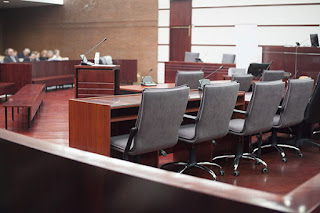If you need a trial attorney, call our office to schedule a consultation. We know that most people experience a great deal of anxiety when called to give a deposition. In most cases, their nervousness is because never having done so before, they are often completely in the dark regarding the entire legal process. They do not know what the objectives of a deposition are, what to expect, what pitfalls to look out for, or even what to wear.
Because being prepared is more than half the battle, the following tips from a trial attorney on preparing for your deposition should help the entire process go more smoothly, with minimal stress on you. But first:
What Is a Deposition?
A deposition is a formal, legal proceeding that takes place not in a court, as you might expect, but usually in the office of one of the attorneys. Although no judge is present, a court reporter will administer the oath to the deponent and will also record your sworn testimony to be used in the trial at a later date. During the deposition, you will be asked questions by the opposing counsel, as would happen when cross-examined in court.
What Is the Purpose of a Deposition?
A deposition is taken for three primary purposes. The opposing attorney wants to learn everything they can about the case and intends to find out what you know about the issues and what you are going to say at trial. They also hope to catch you in an untruth or spot any discrepancies in your testimony to use at trial to show that you are not a witness who can be relied on. This is especially true if your testimony at trial varies in any extent from your testimony in the deposition.
Tips From a Trial Attorney for Preparing for Your Deposition.
Perhaps the most important fact to remember is that regardless of how nice and friendly the questioning attorney seems to be, they are not on your side.
1) Think Before You Answer:
Take your time. It always makes sense to pause and think about the question you have just been asked. This also gives your attorney time to raise an objection to the question if they see fit. Also, never try and answer a question before the attorney has finished asking it. Not only is the court reporter unable to take down what two people are saying at the same time, which makes for a confused transcript, but the question may be slightly different from what you first thought.
2) Make Sure You Understand the Question:
It is very important that you pay close attention to every question asked. If the question seems vague or unclear, ask the attorney for clarification or to rephrase the question. You could say something like, "What do you mean by that?" If there are two parts to a question, ask the attorney which they would like answered first. Remember that the longer the question, the greater the possibility you will answer it incorrectly.
3) Keep Your Answers Short and Do Not Volunteer Information:
As far as possible, limit your answers to a simple "yes" or "no." While you should not attempt to evade any questions or decline to give facts you are aware of, it is unwise to attempt to insert facts you think might be favorable to the case or argue your position. Remember that lengthy answers often reveal more information to the opposing attorney than your attorney may want them to know. Also, do not attempt to fill in any breaks or pauses in the questions. Volunteering information or telling the attorney what you think they want to know helps the other side. If a direct question hasn't been asked, do not say anything.
4) Stay Calm:
Getting angry or excited may cause you to say things that do not "come out right" and could be later used against you. Also, remember that mental fatigue sets in very quickly. If you find you are getting tired, do not be afraid to ask for a break.
5) Do Not Be Afraid to Say You Do not Know or Do Not Remember:
There is not a person alive who can remember every single detail of an incident; therefore, do not be afraid to say you do not remember something if that is the truth. Your credibility is at stake here, so do not attempt to embellish details you do not actually remember.
6) Do Not Guess:
All too often, the questioning attorney will ask you to give your best estimate of something, like the speed a vehicle was traveling at or how far away something was. Be aware that most people are very poor when it comes to estimating these kinds of numbers, and their best "guess" can often be proved wrong scientifically. Thus, the opposing attorney can show that you have no idea what you are talking about or that you are deliberately misstating facts.
7) Be Wary of Summaries:
It is common practice for the opposing attorney to summarize your testimony after answering a number of questions. However, all too often, the summary will be a mixed bag of things you said and some misquotes. If you do not agree with the summary, say so when questioned, then calmly point out which parts are inaccurate.
8) Tell the truth.
This is very important. Any lies or half-truths will come back to haunt you and could, if severe enough, tip the balance of the trial.
We hope that when preparing for your deposition, these tips from a trial attorney will make the experience more comfortable for you.
